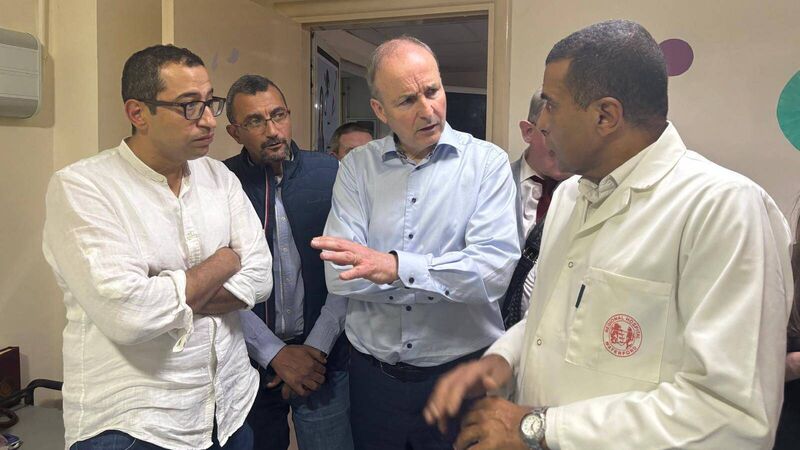Gaza crisis: Inhumanity on grand scale seen in denial of basic aid items

Tánaiste Micheál Martin meets patients and staff in El Arish hospital.
Inhumanity on a grand scale is how Tánaiste Micheál Martin has described the ongoing denial of essential and life-saving aid into Gaza, after visiting warehouse after warehouse of rejected goods.
CT scanners, oxygen masks, incubators for babies, crutches for those who have lost limbs, and ambulance stretchers are all included in a growing list of items considered dual use and, therefore, prevented from entering the Palestinian enclave.













